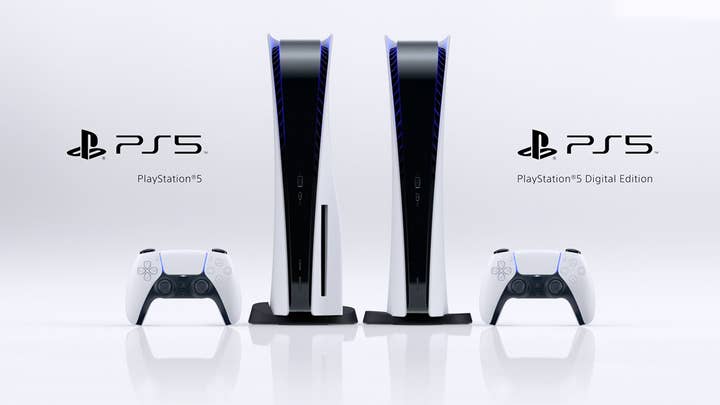Firing the starting pistol on the next generation | Opinion
The details of November's launches are now in the wild -- for once, this will be a console race with no clear winner from the start
For all that Sony and Microsoft have spent much of the year articulating very different visions of the future of consoles, it's striking just how similar the consoles they'll be launching in November will actually be.
Both firms will launch a flagship console, with very similar specifications and functionality, at $499 in the second week of November. Both of them will, it transpires, continue to support their existing hardware with versions of major new software titles. Both of them are focusing on extensive back-catalogue offerings and subscription services, and both are embracing the notion of free upgrades to next-gen versions of existing games rather than a repeat of the "HD remake" type approach that dominated at the last generational handover.
It's striking just how similar the consoles PlayStation and Xbox are launching in November will actually be"
Sony's announcement of most of the missing details in its plans for the PS5 launch put to rest a lingering fear that the company might repeat the mistakes of its own past with an over-ambitious price tag. Matching the Xbox Series X on pricing makes this into a pretty direct head-to-head contest for early adopter hearts and minds. The biggest difference between the companies at this point, aside from the wildcard of Microsoft's excellent Game Pass service, is in their approach to the entry-level model.
Where the Xbox Series S seems designed to disrupt the lower end of the market and potentially upset the long-tail sales of PS4 (and even Switch) by giving a cheap on-ramp to the next generation (at the cost of making the actual definition of "next generation" rather more nebulous), Sony's digital-only model of the PS5 is a much more straightforward proposition. Like the Xbox Series S, it lacks a Blu-Ray drive, but it's otherwise a full-featured PS5 that costs $100 less than the headline model.

That $100 price differential has raised some eyebrows, since it's fairly obvious that adding a Blu-Ray drive doesn't add that much to the bill of materials for the new console -- but looked at the other way around, it makes perfect sense. Sony can afford to sell you a digital-only console at a steep discount because it knows that, on average, it's going to make more money over its lifetime. The $100 discount isn't because you're not getting a drive, it's because you're eschewing access to retailer discounts on games, to the entire second-hand market, and to the notion of borrowing or lending software with your friends.
Sony getting its digital-only console within $100 of Xbox Series S takes a bit of the wind out of Microsoft's sails
For many consumers, that's fine -- a lot of people will look back over their last few years of console usage and realise they haven't bought or borrowed a physical game, I imagine. It's a judgement people will find pretty easy to make; "do I want a disc drive or not" is an easier question for most consumers than the more complex balance of price versus performance and functionality being offered in the Xbox Series S. I don't think the relative complexity of the Xbox Series S concept is going to sink it -- nothing can take away from just how attractive the proposition of a next-gen system for $299 is going to be -- but Sony managing to get its digital-only console within $100 of that price point takes a bit of the wind out of Microsoft's sails, at least in terms of disruption.
If Sony's entry-level was any more expensive, a lot of consumers would start to see the Series S as a very attractive option even if there's some uncertainty about its lifespan; a chance to try out the Xbox ecosystem and get a taste of the next generation, all the while keeping a toe in Sony's waters with the still-relevant PS4 or PS4 Pro. With the price differential kept to $100, though, that appeal is diminished and the status of the digital-only PS5 as a cost-effective "real" next-gen system is one that Sony will no doubt push hard in the coming months.

That situation is perhaps a microcosm for everything about Sony's announcement -- an overriding sense that it has done enough, executed effectively enough, to stave off the competition. If that sounds like damning with faint praise, well, there's an element of that for sure. In the broader strokes of Sony's announcement event you could almost see a glimpse of the launch plan they wish they had, the one laden with heavy-hitting software from the world-class studio line-up that is by far the company's strongest competitive advantage, but 2020 has been what it's been and neither company's console launch has escaped unscathed.
For the first time in decades, we're about to enter a console battle that is truly wide-open from the outset
They're both having to launch systems that are leaning heavily on a combination of the promise of access to last generation's software and third-party cross-platform games. While that's robbed Microsoft of a Halo launch title, Sony's launch plans are no less scarred; the gaps are obvious even if the company's decision to play its cards close to its chest earlier in the process makes it less clear what's missing.
Given the circumstances, it's worth noting that rather than faint praise, Sony's ability to smoothly execute even a somewhat diminished PS5 launch event really deserves huge plaudits. It's not exactly what the company would have wanted or planned for, but it's enormously impressive just how solid and well-executed this launch is turning out to be in the face of an incredibly tough and disruptive year.
That goes for Microsoft's efforts, too; I've noted in the past that this generation's console launches have been marked, thus far, by the total lack of any major missteps from either Sony or Microsoft. Where the past two generations were essentially decided from the outset by one or the other company tripping over its own feet before the hardware even arrived in stores, this time around both companies have been smart and professional, avoiding all unforced errors and going through the launch process with a minimum of problems even despite everything the year has thrown at them.
With the pricing and launch dates nailed down, and pre-orders opening up, this pattern has continued. The impact of the Xbox Series S, of Microsoft's focus on Game Pass, and Sony's stepping up with a significant expansion of PlayStation Plus functionality, and of the overall divergence in the strategies articulated by both firms all remain to be seen, but at this moment in time, both the Xbox Series X/S and PS5 are viable, attractive, well-positioned consoles.
Sony enters the race with a stronger hand simply due to the inertia of the PS4, but Microsoft's willingness to innovate around the console business model more broadly could erode that lead very quickly if consumers warm to the idea. By the end of the year, millions of consumers around the world will have voted with their wallets; for the first time in decades, we're about to enter into a console battle where the field is truly wide-open from the outset.

